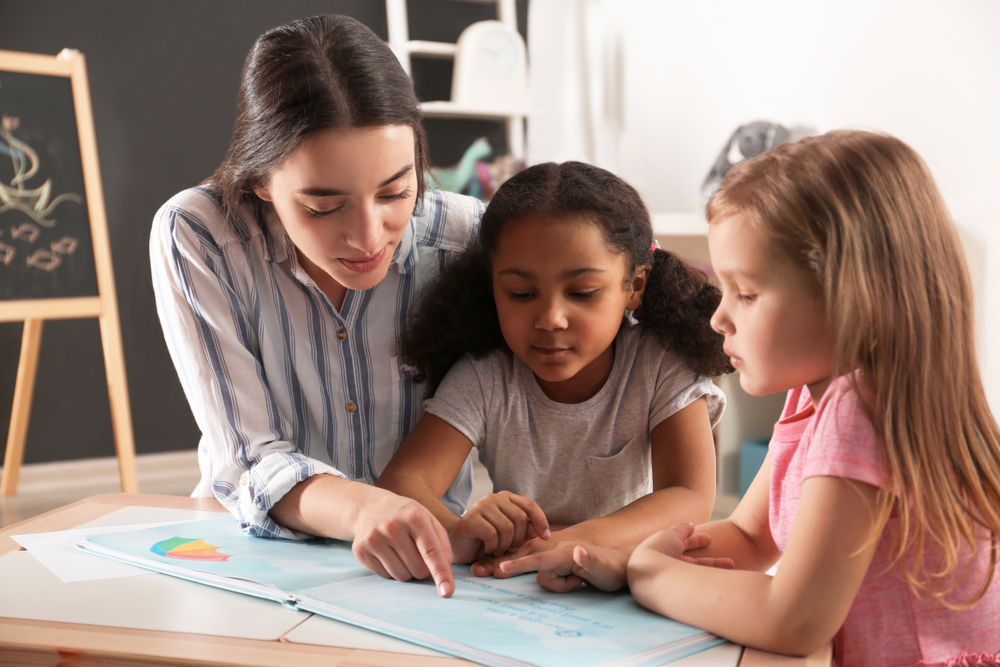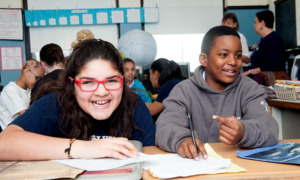This story was originally published by Chalkbeat. Sign up for their newsletters.
After switching its elementary reading curriculum to one aligned with the science of reading, Denver Public Schools is celebrating an increase in the percentage of kindergarten through third grade students who ended the school year reading on grade level.
But the test scores are still below pre-pandemic levels — a vexing outcome the district is acknowledging by adopting a new intervention program to help the most struggling learners. Studies show that students who don’t read proficiently by third grade are less likely to graduate.
The lower test scores show the long tail of pandemic learning loss.
They indicate that the pandemic not only affected children who were in school when the virus hit in early 2020, but also those who were too young to be enrolled. This past year’s third graders were preschool age when COVID shuttered school buildings across the country. This past year’s kindergarteners were babies.
In a press release, DPS reported that 61% of kindergarten through third graders this past spring were reading at grade level or above. That’s up from 58% in the spring of 2023.
But in the spring of 2019 — before the pandemic — 68% of kindergarten through third graders were reading at grade level, meaning DPS’ young students are still seven percentage points below pre-pandemic levels. Reading and writing test scores for third through 11th graders won’t be released until August, but last year’s scores showed a similar pattern.
Past early literacy data has shown wide, 30-percentage point gaps between the scores of white students and Black and Hispanic students that DPS has struggled to close. The district did not release a breakdown by race of the spring 2024 early literacy test scores.

Chart: Mia Hollie
Denver Public Schools did not administer tests in spring 2020. Source: Denver Public Schools
DPS adopted a new reading curriculum
DPS first raised the alarm about the pandemic’s effects on early literacy in the fall of 2021, when test scores showed a steep drop in the percentage of young students reading at grade level. The district laid out a series of steps to address the problem, some of which were already required by a pre-pandemic push to boost early literacy statewide.
In the 2022-23 school year, DPS rolled out a new reading curriculum in kindergarten, first, and second grades called Core Knowledge Language Arts. The switch was prompted by a 2019 state law requiring schools to use scientifically based early reading programs.
DPS’ previous curriculum was rejected by the state for not following the science of reading, a large body of research on how children learn to read. One key belief is that teaching phonics in a direct and systematic way helps build skilled readers. DPS’ new curriculum is generally well-regarded both for teaching phonics and building students’ background knowledge, which helps with reading comprehension.
This past school year, 2023-24, DPS began using Core Knowledge Language Arts in third grade. And this fall, the district plans to roll out the curriculum in fourth and fifth grades.
To comply with a federal court order on how DPS serves English language learners, the district also introduced a new Spanish reading curriculum, called Caminos, at the same time. Caminos is the Spanish counterpart to Core Knowledge Language Arts.
Jennifer Begley, the district’s director of humanities, credits the new curricula — and a bevy of state- and district-mandated training on the science of reading — for the recent boost in the percentage of young students reading at grade level.
When the district adopted the new curriculum two years ago, it also began training teachers on how to test students to understand exactly which parts of reading were causing them to stumble, and how teachers should address it. Begley called it an “assessment decision tree”: If students are struggling with short vowel sounds, what lesson should the teacher teach next?
“So it’s really having a stronger system for the levels of assessment that are needed and then how those assessments are driving instruction for students to close any gaps they have,” she said.
More students are reading significantly below grade level
While DPS is slowly increasing the percentage of students reading at grade level, another troubling trend remains. The percentage of kindergarten through third grade students who are reading significantly below grade level jumped during the pandemic — and has stayed there.
For the past three springs — in 2022, 2023 and 2024 — 23% of DPS K-3 students were reading significantly below grade level, up from 16% in the spring of 2019, according to district data.
[Related: Kansas public schools relying on blueprint for literacy to build reading skills]
“We could see we were moving kids into scoring grade level and above and keeping them there,” Begley said. “But we were not moving significantly below grade level at the same rates.”
In an attempt to help the most struggling readers, the district is adopting a new intervention curriculum this fall. Really Great Reading differs from the previous intervention curriculum because it’s teacher-led instead of computer-based.
The hope, Begley said, is that a teacher-led program will allow for more in-the-moment course correction.
“If I’m hearing a student mispronounce a sound, I can stop and go, ‘OK, your tongue is in the wrong place. Your tongue needs to be behind your teeth when making the ‘sss’ sound,’” Begley said. “A computer can’t hear that.”
To comply with the federal court order, the district is also adopting a new Spanish reading intervention curriculum called Esperanza.
DPS is also changing its main early literacy test from computer-based to teacher-led. Most Denver elementary schools currently use a computer-based test called Istation. This fall, most schools will switch to a test called DIBELS where the teacher sits with each student and asks them to name letters, say and blend letter sounds, and read words.
A teacher, Begley said, will be able to hear if and how a student is mispronouncing a sound, “so when they start instruction, they already know that about the student.”
[Related: For stronger readers in third grade, start building knowledge in preschool]
With COVID relief dollars and state grants, the district also invested in high dosage tutoring and expanded summer programming for elementary school students. But efforts to measure the academic outcomes of those programs have been mixed.
***
Melanie Asmar is the bureau chief for Chalkbeat Colorado. She covers Denver Public Schools.
Chalkbeat is a nonprofit news site covering educational change in public schools and the effort to improve schools for all children.






























